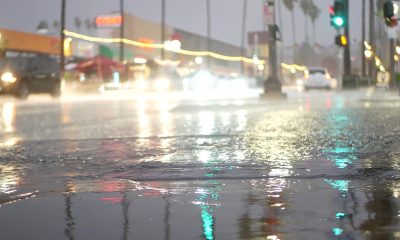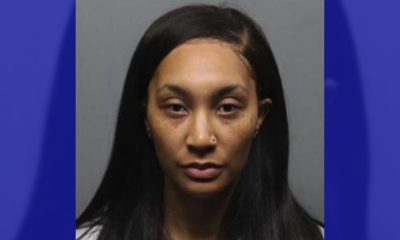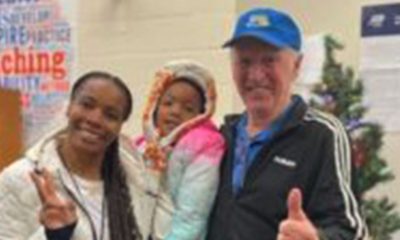Advice
Keep Safety in Mind for That Winter Walk at East Bay Regional Parks
Public safety personnel and equipment may not be able to respond easily to emergencies due to road and trail conditions, The Richmond Standard reported. The majority of East Bay Regional Parks have been closed since Jan. 4 due to recent storms and conditions. Only some shoreline and delta parks are currently open. See list at EBParks.org.
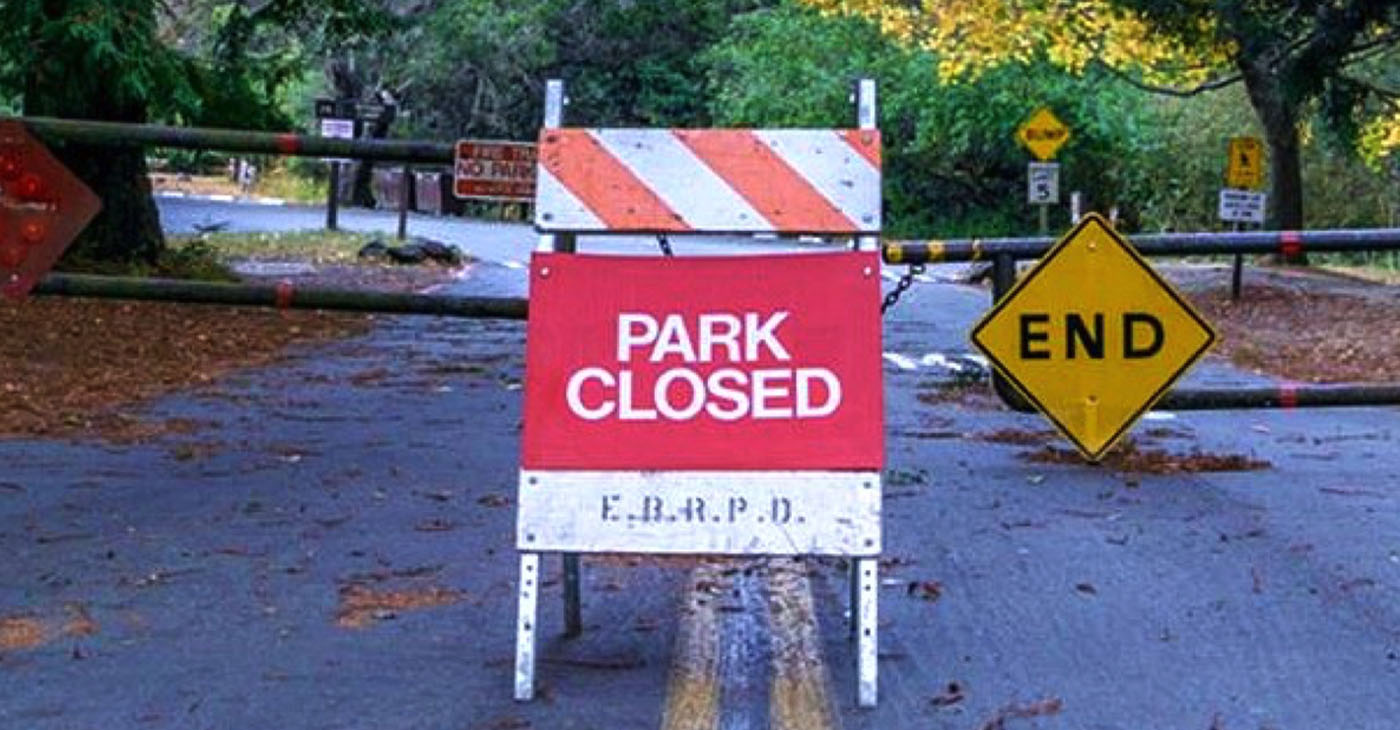
PARK IT
By Ned MacKay
Because of the series of heavy storms that have battered the region in recent days, this is a good time to emphasize winter season safety measures for park visitors.
According to the Richmond Standard, the East Bay Regional Parks District is urging the public not to enter closed parks or areas with caution tape due to storm-caused safety hazards such as downed trees, falling branches, flooding and mudslides.
Public safety personnel and equipment may not be able to respond easily to emergencies due to road and trail conditions, The Richmond Standard reported. The majority of East Bay Regional Parks have been closed since Jan. 4 due to recent storms and conditions. Only some shoreline and delta parks are currently open. See list at EBParks.org.
Entering closed parks not only risks your safety, but also those of first responders.
“Help keep yourself and first responders safe by staying out of closed parks,” East Bay Regional Park District Fire Chief Aileen Theile told The Richmond Standard. “It may not seem unsafe, but the dangers and the potential for injury or loss of life are real.”
Anyone entering Regional Parks when closed is subject to citation or arrest for violation of the Park District’s Ordinance 38.
Here are some safety tips for winter activity in the parks:
- Check the weather before you go. And go with a friend, so someone can seek help if there’s an emergency. If you go alone, be sure to tell a responsible person where you are going and when you will be back. Then inform them when you have returned. In an emergency, call 911 or 510-881-1121, 24 hours a day.
- Be prepared for changeable weather. Dress in layers, carry extra warm clothing, and wear sturdy footgear. It’s better to carry clothing you may not need than it is to need clothing you do not have.
- Bring a map and stay on the official trails. Don’t take shortcuts on unmarked paths. Maps can be downloaded from the park district website, www.ebparks.org.
While you are on the trails, watch for rockslides, fallen trees and any other hazards. The rangers try to keep on top of these situations, but there are many trails and there’s likely to be considerable storm damage. Abide by any signs warning of closure or dangers and cooperate with instructions from park district staff.
- Take a snack for an energy boost. A thermos full of a hot beverage works well, too.
- Trails will likely be muddy. Leave a pair of dry shoes in the car, along with a cardboard box for those muddy boots.
- For up-to-date information on park hazards and closures, click on “Visit a Park” at the top of the home page, then click again on “Alerts & Closures.”
With the new year comes the 30th annual outing of the East Bay Regional Park District’s always-popular Trails Challenge program. It’s free of charge, fun for all ages and levels of ability, and easy to join.
The goal is to complete any five Trails Challenge trails or 26.2 miles (same distance as a marathon) of non-challenge trails. Record the trail names and distances and submit your log to reservations@ebparks.org by Dec. 1, 2023. You’ll be rewarded with a 2023 Trails Challenge pin, while supplies last.
The program is a great way to become reacquainted with familiar regional parks or explore new ones. It’s also an incentive for enjoyable and healthy outdoor exercise.
You can download the Trails Challenge guidebook at ebparks.org/TC. It contains a list of 20 trails, graded as easy, moderate or challenging. There are trails open to hikers, bicyclists, equestrians and dog walkers. Trails Challenge 2023 also offers increased accessibility, with trails that are usable by people with mobility limitations.
Here are some examples. There are easy hikes listed for Bay Point Regional Shoreline in Bay Point and Oyster Bay Regional Shoreline in San Leandro.
For a moderate hike, there’s a trail at Sunol Regional Wilderness in southern Alameda County, and one at Lake Chabot near Castro Valley.
Challenging hikes include trails at Morgan Territory north of Livermore and Wildcat Canyon in Richmond.
Besides the detailed trail descriptions, the Trails Challenge guidebook contains useful information about trail safety, etiquette, and essential equipment.
The 30th Anniversary Trails Challenge program is made possible by support from Kaiser Permanente and the Regional Parks Foundation.
The cultural history of the Ohlone Peoples is the theme of a program from 1 to 2 p.m. on Saturday, Jan. 14, 2023, in the visitor center at Sunol Wilderness Regional Preserve with naturalist Kristina Parkison.
Drop by the Ohlone cultures informational table to learn about the rich culture and thriving present-day lifestyle of the first people who lived in what is now the park.
Sunol Regional Wilderness is at the end of Geary Road off Calaveras Road, about five miles south of I-680 and the town of Sunol. There’s a parking fee of $5 per vehicle; the program is free of charge. For information, call 510-544-3249.
With the rains come mushrooms and other fungi. Learn more during a naturalist-led “Funky Fungi” program from 11:30 a.m. to 12:30 p.m. on Saturday, Jan. 14 at Ardenwood Historic Farm in Fremont.
Find out why mushrooms grow in circles, why mushroom rings have been historically associated with fairies, and other mushroom lore. Then make your own fairy craft.
The program is free of charge and registration is not required. Ardenwood admission fees apply.
Ardenwood is at 34600 Ardenwood Blvd., just north of Highway 84. For information, call 510-544-2797.
“Old Skool Skillz” is the title of a program from 2 to 3 p.m. on Saturday, Jan. 14, 2023, at the Environmental Education Center in Tilden Nature Area near Berkeley with naturalist Anthony Fisher.
Make an elderberry flute and gain appreciation for the accomplishments of the first people to inhabit the lands of the East Bay and beyond.
The center is at the north end of Tilden’s Central Park Drive, accessible via Canon Drive from Grizzly Peak Boulevard in Berkeley. For information, call 510-544-2233.
Topics related to the ecology of the Delta will be explored during a hands-on, naturalist-led “Afternoon Adventure” program from 2 to 3 p.m. on Sunday, Jan. 15, 2023, at Big Break Regional Shoreline near Oakley. The program is free, and registration is not necessary.
Big Break is at 69 Big Break Road off Oakley’s Main Street. For information, call 510-544-3050.
It’s a good idea to check the park district website before heading out, to be sure your park is open. And stay safe when out enjoying the parks. For a full list of activities and programs planned in the regional parks, visit www.ebparks.org/things-to-do.
The Richmond Standard contributed to this report.
Activism
Leading with Action, Love and Data Points: Six Questions for the California Black Women’s Collective
“Black Women in California have always had to be active participants in the labor market, but this report showcases the need for fair and just wages even for those of us with higher educational attainment,” said Kellie Todd-Griffin, President and Chief Executive Officer of the California Black Women’s Collective.
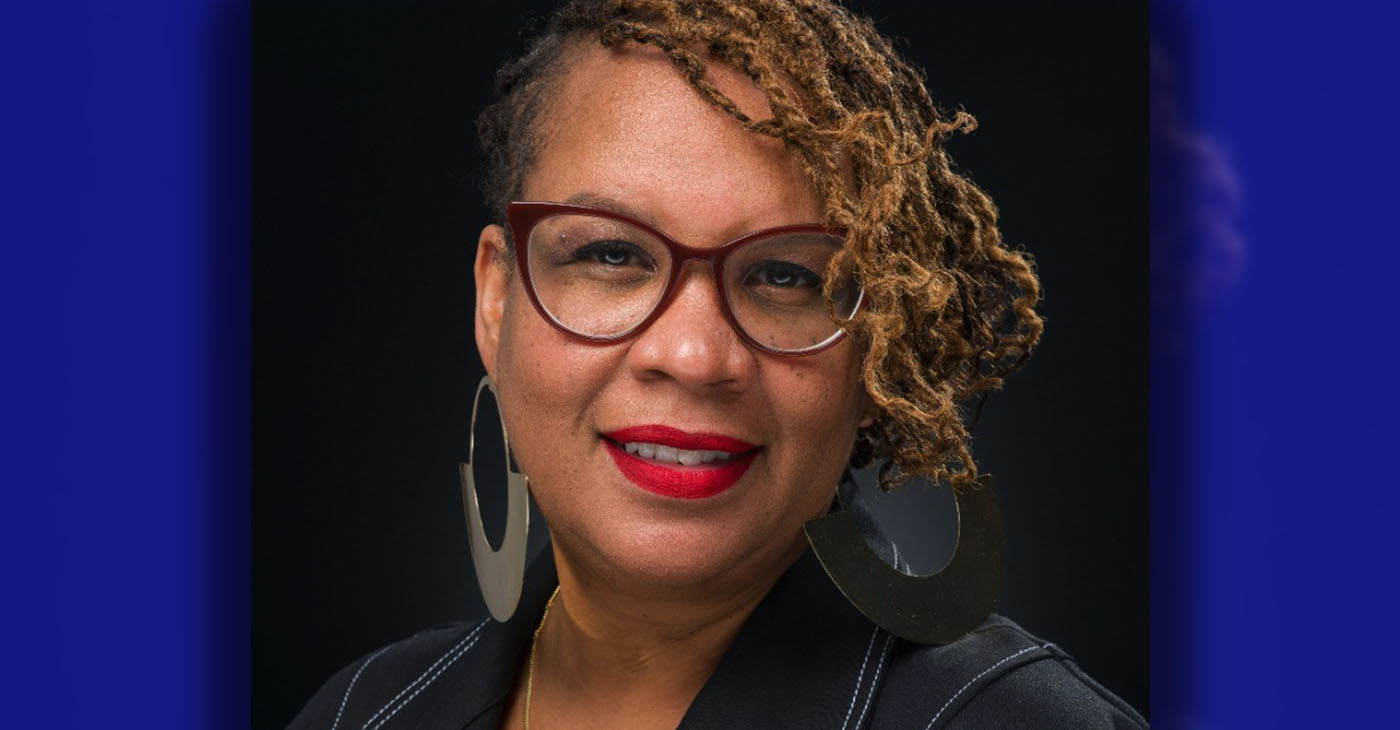
By Edward Henderson | California Black Media
The California Black Women’s Collective (CABWC) is a sisterhood of women from different professional backgrounds aiming to uplift and address the issues impacting Black women and girls in the state. They approach problem-solving with a range of expertise — from politics, business, and community advocacy to the arts, entertainment, social justice activism, and more.
Earlier this month, the organization released a wage report focused on Black women’s earnings in California titled “Pay Me What I am Worth.”
“Black Women in California have always had to be active participants in the labor market, but this report showcases the need for fair and just wages even for those of us with higher educational attainment,” said Kellie Todd-Griffin, President and Chief Executive Officer of the California Black Women’s Collective.
“Black Women in California wages are below the state mean wage and make less than most of their female counterparts in every category,” continued Todd-Griffin. “We must take action now.”
CABWC’s Black Girl Joy Festival is an event designed to uplift Black Women and Girls in a safe space while learning and having fun. The festival includes free workshops that prepare women for college, dancing, self-defense training, health screenings, yoga, arts & crafts, and food vendors.
The Collective’s Empowerment Institute, launched in collaboration with the Los Angeles-based research firm EVITARUS, produces the annual California Black Women’s Quality of Life Survey.
California Black Media spoke with Todd-Griffin about the organization’s impact, challenges it faces and some of its near-term plans.
What does your organization do to improve the lives of Black people in California?
The California Black Women’s Collective Empowerment Institute’s uplifts the issues and voices of Black Women and Girls in California through our programming. That includes the Black Women’s Worker Initiative that helps Black Women prepare for public section and non-traditional careers. Other initiatives are the CA Black Women’s Leadership Development Certificate program at CSU Dominguez Hills; Black Girl Joy Festival for middle and high school students; Conversations for Black Women, etc. Our targeted research also uncovers solutions to the toughest challenges Black women and girls face.
What was your greatest success over the course of the last year?
We released the first-ever California Black Women’s Quality of Life Survey. This study collected insights from 1,258 Black women voters across California to understand their economic state, most pressing concerns, their attitudes toward policymakers, and their experiences and issues in California.
In your view, what is the biggest challenge Black Californians face?
Black Californians, especially Black Women, continue to be left out of the conversation when it comes to building meaningful change to improve the lives of those who struggle the most.
What was your organization’s biggest challenge?
Our biggest challenge over the last year was transitioning from a volunteer driven entity, the California Black Women’s Collective, to creating a non-profit organization, the California Black Women’s Collective Empowerment Institute.
Does your organization support or plan to get involved in the push for reparations in California?
Absolutely!
How can more Californians of all backgrounds get involved in the work you’re doing?
We are on all the social media channels. They can also visit our website, www.CABlackWomensCollective.org.
Activism
The Silent Struggle of Pregnancy Loss
It is a tragedy that Black women’s odds of pregnancy loss are much higher than the general population. It’s even more tragic that there is a Black woman reading this article who has experienced pregnancy loss and has suffered in silence. There are an array of feelings associated with pregnancy loss, and women often feel alone and isolated in these feelings believing that no one understands what they are going through.
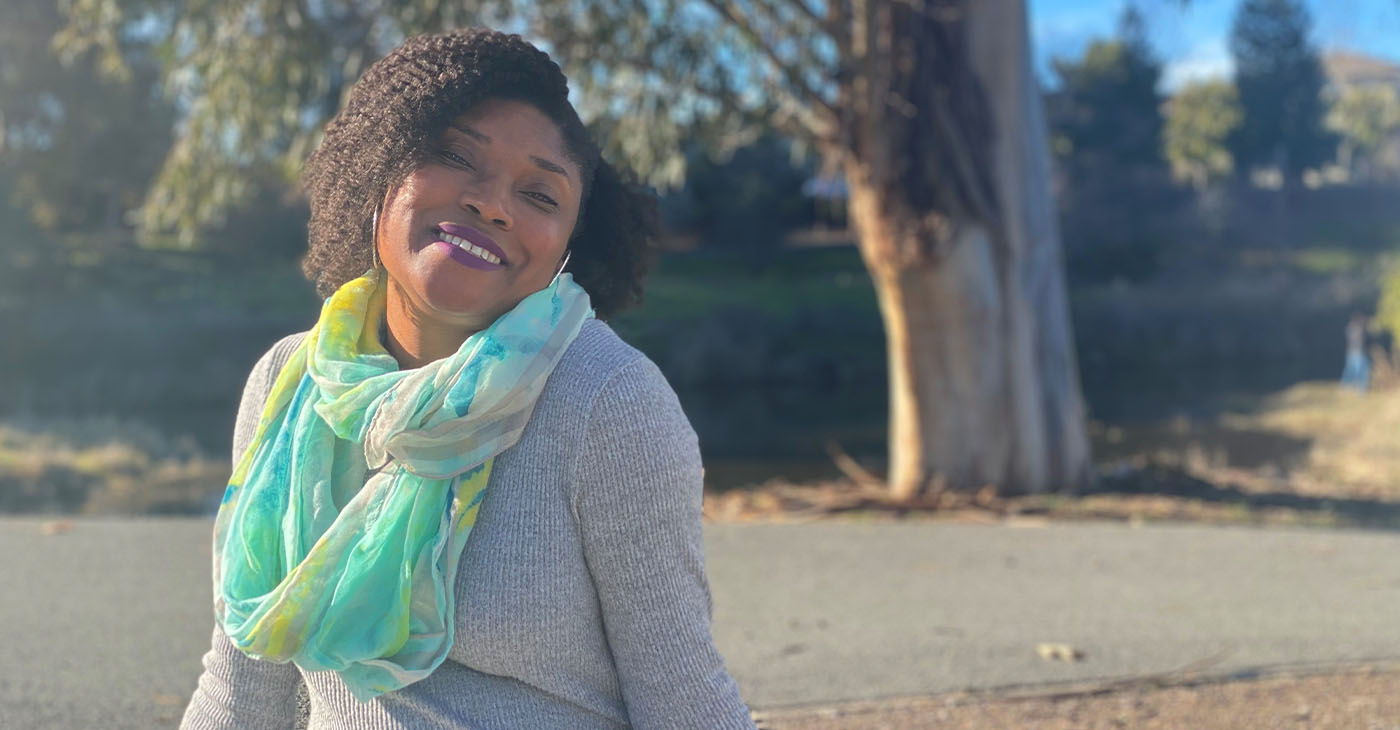
By Narissa Harris, LMFT
The topic and contents of this article may be difficult for some readers. Yet, it is of paramount importance to shed light on the silent struggle of pregnancy loss experienced by countless women.
During the holiday season, we often assume everyone is in a festive, happy mood. However, this time of year is filled with mixed emotions and can be especially difficult for Black women, who are 2-3 times more likely to experience a pregnancy loss compared to other women. Pregnancy loss (the death of an unborn baby/fetus during pregnancy) is experienced by 10-15% of women and doubles to 20-30% for Black women. Additionally, Black women are 3 times more likely to have a stillbirth in comparison to other women.
It is a tragedy that Black women’s odds of pregnancy loss are much higher than the general population. It’s even more tragic that there is a Black woman reading this article who has experienced pregnancy loss and has suffered in silence. There are an array of feelings associated with pregnancy loss, and women often feel alone and isolated in these feelings, believing that no one understands what they are going through.
Whether you are aware that someone has experienced pregnancy loss, or you have experienced pregnancy loss yourself, we must be sensitive and supportive to the women in our lives during this time of year. I encourage the following:
#1 – Don’t ask a woman about her uterus!
Yes, I know this is blunt and harsh, but it is important to be mindful of the trauma that may be triggered when asking a woman when she plans to have a baby. I will never forget being at a holiday party when a family member asked me when I was planning on having kids, unaware that I experienced my 3rd pregnancy loss just 6 weeks prior. It was triggering, upsetting, and annoying. While my husband and I were eventually blessed with 2 healthy children, I share my experience to reiterate the immediate and long-term harm caused by these types of invasive inquiries.
#2 – Connect with a supportive community!
If you are someone who has experienced a pregnancy loss or know a woman who has, it is vital to connect with a safe and supportive community even when everything is telling you (or that woman) to isolate. While no one in the chapter knew that I was dealing with pregnancy loss at the time, my connection with the Bay Area Chapter of the Association of Black Psychologists (Bay-ABPsi) served as a healing and uplifting space for my grief/loss. I learned from Baba Dr. Wade Nobles, who describes babies as divine and the closest beings to God. I want you to remember that connecting with our spiritual community and ancestors can offer healing and support.
#3 – Never lose hope!
To the women who have experienced pregnancy loss, it’s easy to believe that a successful pregnancy will not happen but keep the hope. Take the time you need to grieve and release the baby (or babies), allowing your womb to heal. View the lost pregnancy in terms of a spirit with a Divine purpose, even if it was short-lived, with you being the vessel for that Divine purpose. Believe and prepare for your baby, who will survive and succeed beyond the womb to fulfill their Divine purpose!
Bay ABPsi is a healing resource committed to providing the Post Newspaper readership with monthly discussions about critical issues in Black Mental Health. Readers are welcome to contact us at bayareaabpsi@gmail.com and join us at our monthly chapter meetings every 3rd Saturday via Zoom.
Advice
BOOK REVIEW: “The Day After Yesterday: Resilience in the Face of Dementia”
Well into his twenties, Joe Wallace was asked to sit with his “Granddaddy Joe” while Wallace’s mother and grandmother ran errands. His grandfather was once a vibrant man, and he’d been Wallace’s “hero,” but Alzheimer’s had put a curtain of sorts between them, and Wallace was “so frightened to be left alone with him.” It didn’t take long for him to realize that day that his grandfather was full of stories, and it was “magical.” He applied the same kind of patience when his grandmother began to experience dementia, too, and this spurred Wallace to tell a story of his own with his camera.
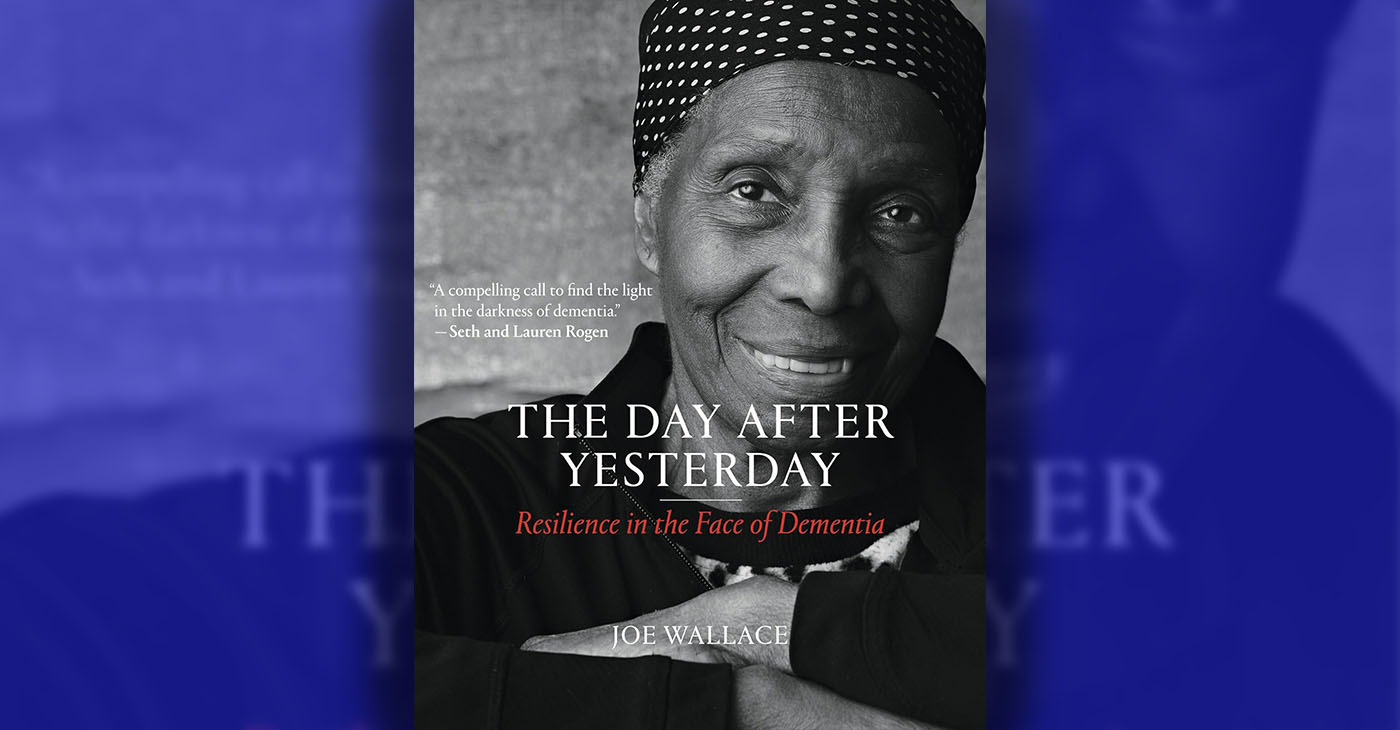
By Terri Schlichenmeyer
Sometimes, Mom talks a lot of nonsense.
She talks in random syllables, half-jokes, thoughts that come out of her mouth backwards or mixed up. You try, she laughs, you laugh, pretending that you understand but you don’t. Mom has dementia and there’s nothing that’ll fix it, but you can read “The Day After Yesterday” by Joe Wallace and change the conversation.
Talk about your awkward encounters.
Well into his twenties, Joe Wallace was asked to sit with his “Granddaddy Joe” while Wallace’s mother and grandmother ran errands. His grandfather was once a vibrant man, and he’d been Wallace’s “hero,” but Alzheimer’s had put a curtain of sorts between them, and Wallace was “so frightened to be left alone with him.”
It didn’t take long for him to realize that day that his grandfather was full of stories, and it was “magical.” He applied the same kind of patience when his grandmother began to experience dementia, too, and this spurred Wallace to tell a story of his own with his camera.
The portraits he captured eventually became an exhibit, and this book.
“In the United States,” Wallace says, “one in three seniors suffers with Alzheimer’s or another dementia at the time of their death.” Nearly $700 billion dollars annually is spent caring for people with dementia. Alzheimer’s, as one of Wallace’s subjects points out, affects Black seniors more often than it does whites. For that matter, people with dementia need not be seniors: early-onset Alzheimer’s can affect someone in their early 20s.
Listen, Wallace’s subjects almost always say, and don’t hide a diagnosis of dementia. There’s no shame in it. Reach out to others who’ve received the diagnosis. Ask for help. Watch for suicidal thoughts and depression. Ask for stories, before they’re lost, and be honest about what’s going on. You can’t change the diagnosis, but you can change your attitude toward it.
It’s called The Long Goodbye for a reason – and yet, your loved one with dementia is still on this side of the sod and you know there’s still some there there. In “The Day After Yesterday,” you’ll get a new point-of-view, for both of you.
In his introduction interview, author Joe Wallace explains how he came to understand that “we could all do so much better” for those with cognitive disabilities, including Alzheimer’s, and why eliminating fear and awkwardness is essential. Readers will be quite taken by the then-and-now pictures and by the conversations Wallace captured.
But beware: this isn’t a book on caregiving or advice-giving. It’s a delightful, heartbreaking, tearful, surprising collection of profiles of everyday people in their own words, people who go with the flow and deal with tomorrow when it comes. Yes, you’ll find advice here, but it pales in comparison to the presence that Wallace’s subjects and their families exhibit.
This powerful book is great for someone with a new dementia diagnosis; it proves that life is not over yet. It’s likewise great for a caregiver, gently ushering them toward grace.
Get “The Day After Yesterday. It’s time for a talk.
“The Day After Yesterday: Resilience in the Face of Dementia” by Joe Wallace
c.2023, The MIT Press. $34.95; 157 pages.
-

 Activism4 weeks ago
Activism4 weeks agoOakland Post: Week of March 27 – April 2, 2024
-

 #NNPA BlackPress4 weeks ago
#NNPA BlackPress4 weeks agoCOMMENTARY: D.C. Crime Bill Fails to Address Root Causes of Violence and Incarceration
-

 #NNPA BlackPress4 weeks ago
#NNPA BlackPress4 weeks agoMayor, City Council President React to May 31 Closing of Birmingham-Southern College
-

 #NNPA BlackPress4 weeks ago
#NNPA BlackPress4 weeks agoBeloved Actor and Activist Louis Cameron Gossett Jr. Dies at 87
-

 Community1 week ago
Community1 week agoFinancial Assistance Bill for Descendants of Enslaved Persons to Help Them Purchase, Own, or Maintain a Home
-

 Activism3 weeks ago
Activism3 weeks agoOakland Post: Week of April 3 – 6, 2024
-

 Business1 week ago
Business1 week agoV.P. Kamala Harris: Americans With Criminal Records Will Soon Be Eligible for SBA Loans
-

 Activism2 weeks ago
Activism2 weeks agoOakland Post: Week of April 10 – 16, 2024



